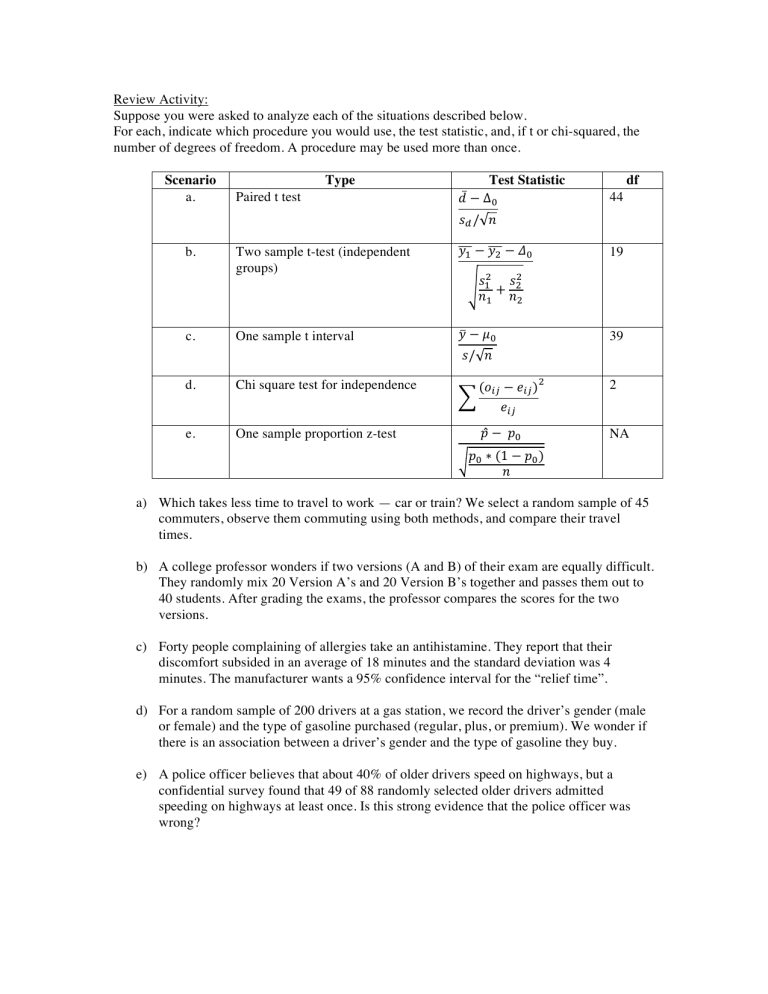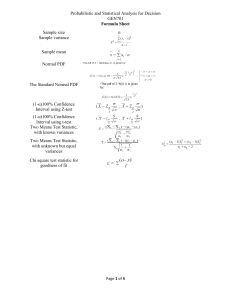
Review Activity: Suppose you were asked to analyze each of the situations described below. For each, indicate which procedure you would use, the test statistic, and, if t or chi-squared, the number of degrees of freedom. A procedure may be used more than once. Scenario a. Type Paired t test Test Statistic 𝑑 − Δ! df 44 𝑠! / 𝑛 b. c. Two sample t-test (independent groups) 𝑦! − 𝑦! − 𝛥! One sample t interval 𝑦 − 𝜇! 19 𝑠!! 𝑠!! + 𝑛! 𝑛! 39 𝑠/ 𝑛 d. Chi square test for independence (𝑜!" − 𝑒!" )! 𝑒!" 2 e. One sample proportion z-test 𝑝 − 𝑝! NA 𝑝! ∗ (1 − 𝑝! ) 𝑛 a) Which takes less time to travel to work — car or train? We select a random sample of 45 commuters, observe them commuting using both methods, and compare their travel times. b) A college professor wonders if two versions (A and B) of their exam are equally difficult. They randomly mix 20 Version A’s and 20 Version B’s together and passes them out to 40 students. After grading the exams, the professor compares the scores for the two versions. c) Forty people complaining of allergies take an antihistamine. They report that their discomfort subsided in an average of 18 minutes and the standard deviation was 4 minutes. The manufacturer wants a 95% confidence interval for the “relief time”. d) For a random sample of 200 drivers at a gas station, we record the driver’s gender (male or female) and the type of gasoline purchased (regular, plus, or premium). We wonder if there is an association between a driver’s gender and the type of gasoline they buy. e) A police officer believes that about 40% of older drivers speed on highways, but a confidential survey found that 49 of 88 randomly selected older drivers admitted speeding on highways at least once. Is this strong evidence that the police officer was wrong?
